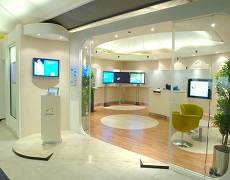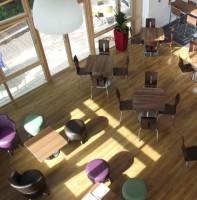September 4, 2013
EU Governments urged to maximise the potential of older workers
The rise in the number of older workers in the UK has been well documented, and the reason is clear, they are a much needed resource. Over the next ten years there are 13.5 million job vacancies which need to be filled, but only seven million young people predicted to join the job market in that time. And the UK is not alone; the EU faces significant skills gaps due to demographic change. But according to a new International Longevity Centre –UK (ILC-UK) report, Working Longer: An EU perspective, supported by Prudential, EU countries urgently need to skill up the older workforce, support more older women in work and address the particular health issues associated with employing older workers. (more…)






















September 5, 2013
Open-plan office workers need time out from the madding crowd
by Sara Bean • Comment, Facilities management, Flexible working, Workplace design
Open-plan offices are now the most popular workplace layout, primarily because they save on space, enable flexible working and, it’s argued, foster better communication and collaboration between employees. Yet open-plan still has some way to go to convince occupants of its merits. According to a recent study published in the Journal of Environmental Psychology, of over 42,000 US office workers in 303 office buildings, workers in private offices remain the most satisfied with their surroundings. However, what constitutes a satisfactory workspace differed, according to the employee’s current office layout. So while noise was the most important consideration for open-plan workers, light and ease of interaction topped the satisfaction list for those housed in cellular offices. (more…)